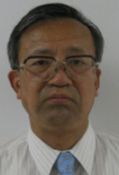|
Plenary Lecture
Automatic Control of Physiological State and Function

Prof. Hidetoshi Wakamatsu
Dept. Biophysical System Engineering
Graduate School of Health Care Sciences
Tokyo Medical and Dental University
Tokyo, JAPAN
E-mail:
wakamatsu.bse@tmd.ac.jp
Abstract:
The regulation of physiological phenomena is duscussed
as an application of system control theory. The
concerning concept is not for only the discription of
biologically regulatory mechasms, but practically
automatic control of specific state and function by
approach of medicare using medicine according to control
laws and/or by surgery as their structual changes. We
discuss first the historical activities in our
concerning domain, such as the clinical control of blood
sugar, blood pressure and so on. Nevertheless, the
conventional methods were sometimes not effective
because of their biological characteristics dependeng on
individualities, thus new control methods had been
required to overcome such difficulties. From this
viewpoint, our control of alveolar CO2-concentration by
ventilation was realized according to adaptive or fuzzy
controls with little influence caused by internal and
external characteristics change. Because of general
versatility of the methods, they have been applied to
various kinds of biological and medical control systems.
Practically, temperature regulatory system in
hypothermia under constitutional anesthesia has been
developed even for a long period of clinical control. We
mention, in particular, control of brain temperature by
water surface-cooling for the brain hypothermic
treatment of patients with cerebrovascular disorders.
Thereby, a patient in ICU was regarded as a unity
controlled system with water temperature into blanket as
an input and brain temperature as an output. During a
long period, brain temperature was well controlled
according to schedule by physicians and the state of
patients without much influence due to various medical
treatments including the effect of characteristics of
individual patients during the therapeutic course.
Furthermore, we describe the automatic control of
intracranial pressure, giving optimal amount and timing
of administration of medicine for decompression in the
brain.
Brief Biography of the Speaker:
He was born on
15.Nov.1946, received his B.E. and M.E. degrees from
Yokohama National University in 1970 and 1972,
respectively. He received his Dr. of Eng. degree in 1984
from the University of Tokyo.
Academic Positions: a research Associate at the
Institute for Medical and Dental Engineering from
1972-1986, Tokyo Medical and Dental University. From
1973-1974, a Visiting Research Associate, Institute for
Biocybernetics, Faculty of Medicine, University of
Erlangen-Nuernberg, Germany. From 1986-1988, an
Associate Professor at Ashikaga Institute of Technology,
Associate professor 1988-1991, Professor 1991-1992 at
Fukui University and Professor, Faculty of Medicine in
1992, Professor, Graduate School of Health Care Sciences
in 2001, Tokyo Medical and Dental University. In 1994 a
visiting professor, Oregon State University and so on.
From 2006 a general chair of Asia Pacific Conference on
Control and Measurement.
Scientific Activities
1. Automatic control system of physiological state and
function for clinical application
2. Biochemical dynamics in the damaged area of brain
tissue and during the clinical treatment.
3. Life support system based on simple principle and
method using the Internet.
4.Haptic operation of virtual visco-elasto-plastic
material by virtual tools
and its application to medicine
|